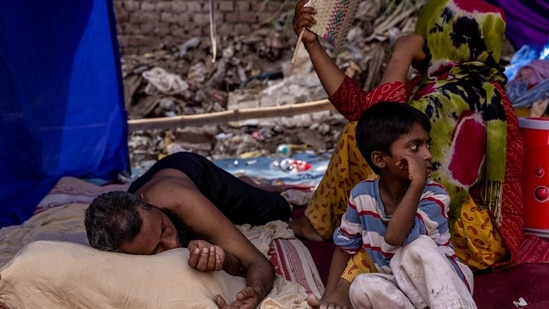Who are Rohingya? ‘Illegal foreigners’ crisis in India | Top 10 facts
On Wednesday, the Union home ministry said Rohingya refugees in New Delhi will be held at a detention centre and then deported.
The Union home ministry said on Wednesday Rohingya refugees in New Delhi will be held at a detention centre and then deported, contradicting Union housing and urban affairs minister Hardeep Singh Puri's earlier statement promising EWS flats and security to members of the Muslim minority.

Puri had earlier in the day outlined new provisions for the Rohingya, signalling a potential change in the government's critical stance towards the refugee group from Myanmar. Rohingya refugees would be allotted flats in western Delhi's Bakkarwala area, provided basic amenities and round-the-clock police protection, Puri had said on Twitter.
But, hours later, the home ministry said in a statement that “Rohingya illegal foreigners” would remain at a locality in the city's southern reaches as authorities worked to deport them. "Illegal foreigners are to be kept in the detention centre till their deportation as per law," the home ministry said in a statement.
Here are the top facts on Rohingya crisis in India
1. For decades, the Rohingya have suffered violence, discrimination and persecution in Myanmar. Their largest exodus began in August 2017 after a massive wave of violence broke out in Myanmar’s Rakhine state, forcing more than 700,000 people - half of them children - to seek refuge in Bangladesh. Entire villages were burned to the ground, thousands of families were killed or separated and massive human rights violations were reported, according to the United Nations High Commissioner for Refugees (UNHCR).
2. There are over 980,000 refugees and asylum-seekers from Myanmar in neighbouring countries, including Bangladesh and India. Approximately 919,000 Rohingya refugees are living at the Kutupalong and Nayapara refugee camps in Bangladesh’s Cox’s Bazar region — the largest and most densely populated camps in the world. Some 2,000 Rohingya had left for Bangladesh this year, amid fears of being deported.
3. Under the 1982 citizenship law, the Myanmar government recognised only about 40,000 Rohingyas as its citizens. The rest were dubbed as "illegal Bengalis" - immigrants from Bangladesh.
4. Rohingya refugees have also sought refuge in Thailand (92,000) and India (21,000), with smaller numbers settling in Indonesia, Nepal and other countries across the region.
5. There are about 16,000 UNHCR-certified Rohingya refugees in India. The government estimate puts the figure of Rohingya refugees living in India beyond 40,000 with maximum concentration in and around Jammu.
6. As of early this year, around 1,100 Rohingya lived in Delhi and another 17,000 elsewhere in India, working mainly as manual labourers, hawkers and rickshaw pullers, according to estimates from Rohingya rights activist Ali Johar, reported Reuters.
7. The Indian government has been trying to send back Rohingya. Last year, the Supreme Court rejected a plea to stop the government from deporting to Myanmar some 150 Rohingya Muslims police detained.
8. Many of the Rohingya in India carry identity cards issued by the UNHCR recognising them as refugees, but the country is not a signatory to the UN Refugee Convention.
9. India also rejects a UN position that deporting the Rohingya violates the principle of refoulement – forcible return of refugees to a country where they face danger.
10. In February this year, Congress MP Shashi Tharoor proposed a refugee and asylum law. He argued the law was necessary because of the “government’s continuing disrespect for the international legal principle of non-refoulement.” Since the bill was from a private member—a parliamentarian not in government—it could not pass.
(With inputs from Reuters)
Get Current Updates on India News, Lok Sabha Election 2024 live, Elections 2024, Election 2024 Date along with Latest News and Top Headlines from India and around the world.




